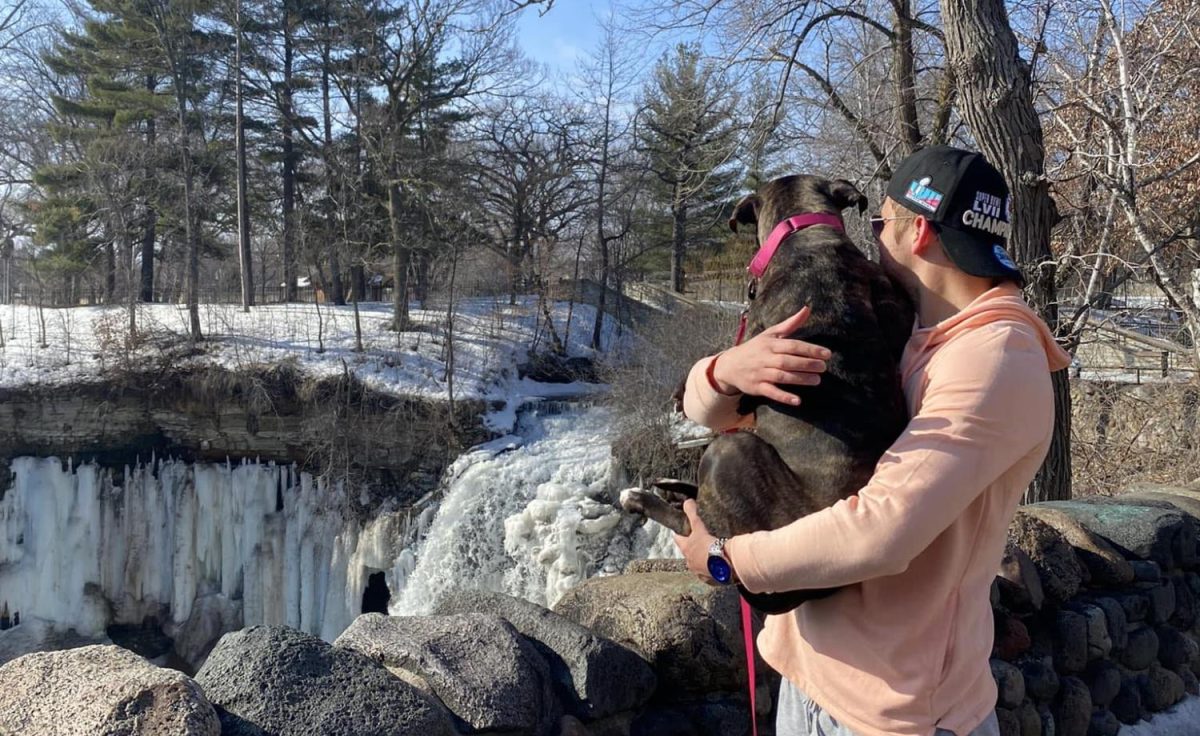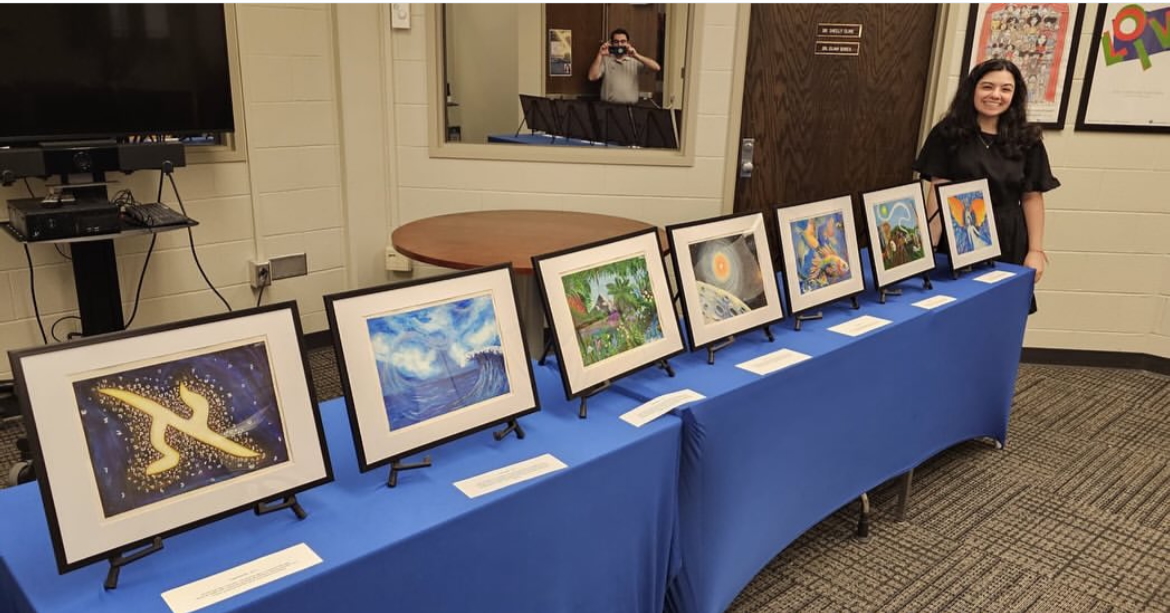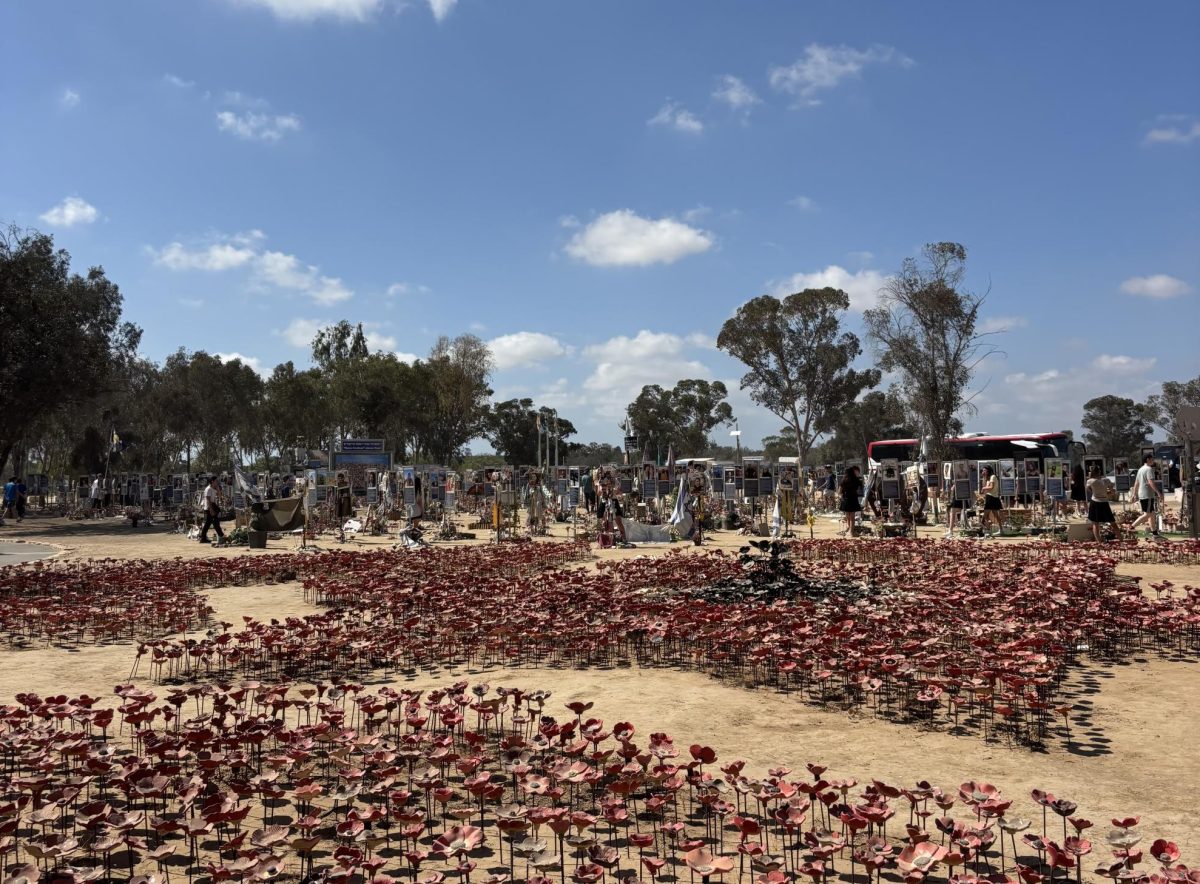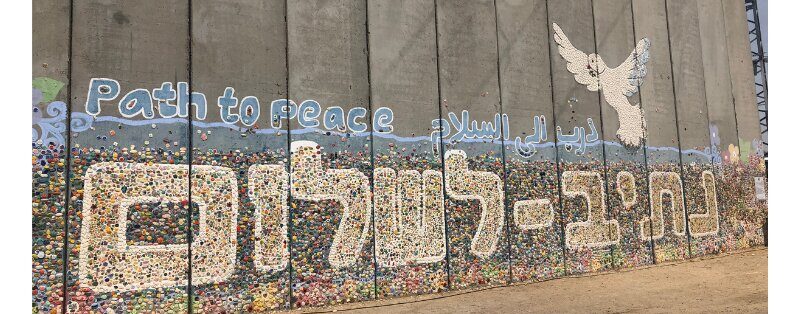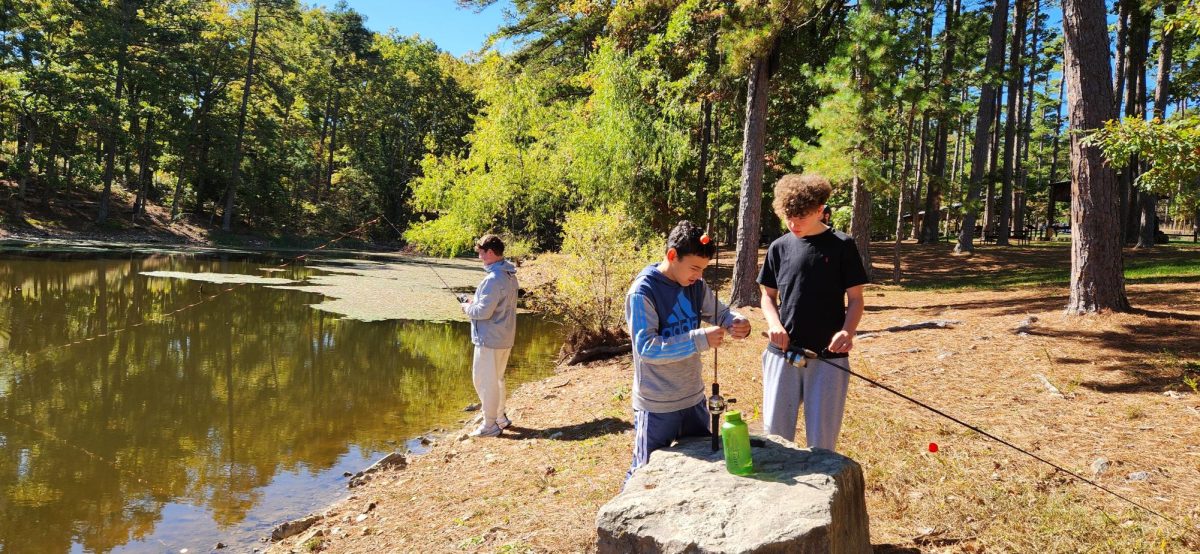What the Israeli-Palestinian conflict means to an American progressive Jew
May 17, 2022
Image by Aviva Clauer.
As a teenage, left-leaning Jew in America, grappling with the Israeli-Palestinian conflict is a major difficulty, so my journey to find my individual stance on it is complicated. Since May 2021, I’ve listened to many voices in the political party I align with that oppose the legitimacy of Israel, a country my religion has raised me to love and support. I’ve noticed media-active teenagers and celebrities frequently speak out on this topic that I’ve been taught is too complex to summarize in an Instagram post. This made me question what I’ve been raised to believe. Yet, before I could get far in making sense of the issue and finding my own stance, blatant antisemitism came rushing at me from the progressive left.
I noticed the emergence of “Infographics” as a social-media-form of news spread on this issue. For my generation, it is the primary source of education, despite having little credibility or truth. I paid close attention to the pro-Palestinian perspective when I came across it; I noted the use of words like: occupation, ethnic cleansing, apartheid state. Although my initial reaction was “there’s no way Israel is an oppressor,” I recognized that some of the arguments made sense. So, I focused my learning on the factual history of the conflict, looking for sources that could credibly tell me about the claims of both Jews and Palestinians to the territory of Israel, for example.
I found that the concept of “Zionism” is a controversial fiend for many pro-Palestinian individuals. This was a shock because, from my own understanding (accumulated through 12 years of Jewish education), Zionism means that Jews, like any other religious group, have a right to self-determination: the ability to return to their biblical homeland from where they’ve been exiled from throughout their history. Is it not blatantly antisemitic to be uniquely against Jews retaining this right? On social media, the line between what was and wasn’t antisemitic continued to blur. I knew that being anti-Israel was not inherently antisemitic, but seeing people who identified that way go on to make coinciding antisemitic remarks felt alienating. It was as though the progressive world was being blindly convinced that the idea of Israel was satanic and against all Palestinian civil rights. Don’t get me wrong, Israel is flawed and Palestinian rights have been systematically negated, but saying that Israel had no right to exist solely because it’s in the hands of Jews is overtly antisemitic. It was just as frightening, though, to see Jews and people who identified as pro-Israel actively denying Palestinian civil rights as well as a paralleling Palestinian right of return – or, right to live in the land of their ancestors.
The only temporary comfort I found, thanks to my privilege of being thousands of miles away from the conflict, was to conclude that I was reading opinions of those with no prior knowledge on the conflict, somehow letting my mind rest through the improbable hope that people would come to their senses and be more understanding.
Fast forward to March 2022. I had a chance to revisit my opinion about the conflict on a Jewish Heritage Trip when Hyman Brand Hebrew Academy (HBHA) took us to Israel for two-and-a-half weeks. In addition to a focus on Jewish history, the trip included a prevalent dual-narrative experience where we learned about the present tense in Israel, hearing from speakers from completely opposite backgrounds on the topic of the conflict.
First, we heard from Uri Pilichowski, a Jewish settler from the West Bank. I was surprised to find that a lot of his words made sense. He told us that he has a right to live in the West Bank because of the Jewish history that originates there. Almost disturbingly, though, Pilichowski seemed generally content in the present state of the conflict. He expressed that if Palestinians want peace he expects them to reach out first, and additionally, to the question of where the Palestinians could gain their right to self determination, he dismissively responded something along the lines of “That’s up to them to figure out.”
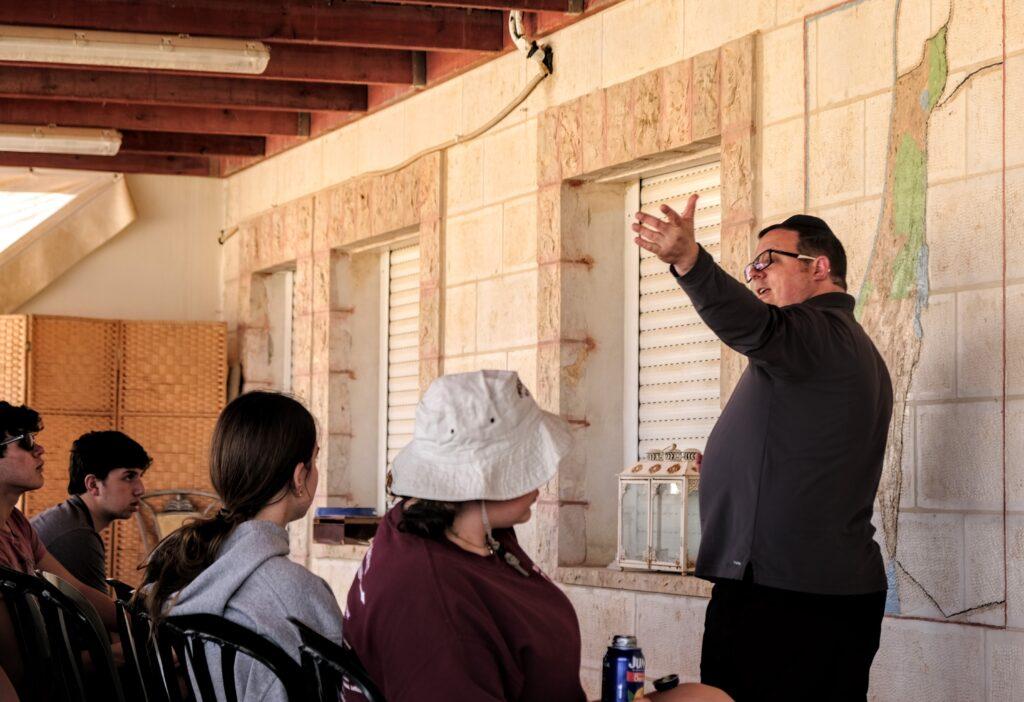
Although I was disappointed in Pilichowski’s disdainful attitude toward the Palestinian struggle, I nonetheless went into our next conversation, with Elias Zaniniri, a Palestinian Authority (PA) Spokesperson, with an open mind, hopeful that I could draw out a rationale through his contrasting opinion in a way that could easily fit into the settler’s narrative.
One thing that Zaniniri specified was that he believed in a two-state solution. I had always associated the phrase, “From the river to the sea Palestine will be free” – a line promoting the entire elimination of Israel – with the Palestinian narrative, so hearing this was refreshing. He did, however, say that the only way he could visualize this solution would be if the IDF stopped occupying the West Bank, giving it fully into the hands of the PA to establish Palestine there, in addition to the Gaza Strip.
The idea of giving up that piece of land is the controversial battle of the ages for Israel, but for an American Jew trying to understand the conflict, this gave me a glimmer of hope as to how I could formulate my own stance. Zaniniri continued to express that peace can only be possible when the individuals in government make it a priority; this was a sort of justification for the PA’s inaction in the two-sided stalemate for sustaining any peace process. I certainly agreed with him in that I disapproved of the recent Israeli government for their inaction in initiating substantive plans for peace.
Zaniniri did, however, make unsettling remarks when a peer of mine asked him if he felt any remorse for or disapproval of the practice known as “pay to slay.” ‘Pay to slay’ is a phrase used to describe Hamas’ cash incentive to commit acts of violence and terror – a common practice taught to Palestinians. Zaniniri discreetly dodged this question, later expressing that he sometimes considers retalitative violence justified.
As you can imagine, I was frustrated to hear this. I thought, Peace will never come if lives are consistently at threat because of unwillingness to negotiate. Two days later, though, our group was privileged to meet with Ronnie Keidar, one of the heads of Netiv Ha’Asarah – a moshav (village) just next to the Gaza Strip border. A strong advocate for peace, her words were refreshing. She told us about work she does helping Gaza residents by driving them into Israel so they can obtain resources, like healthcare, that they cannot get inside of Gaza. Keidar explained that on these drives she discusses with them how to peacefully live beside each other. Through small measures like this, she has fostered substantial discourse on the topic of peace with Palestinians themselves, which I found remarkable.
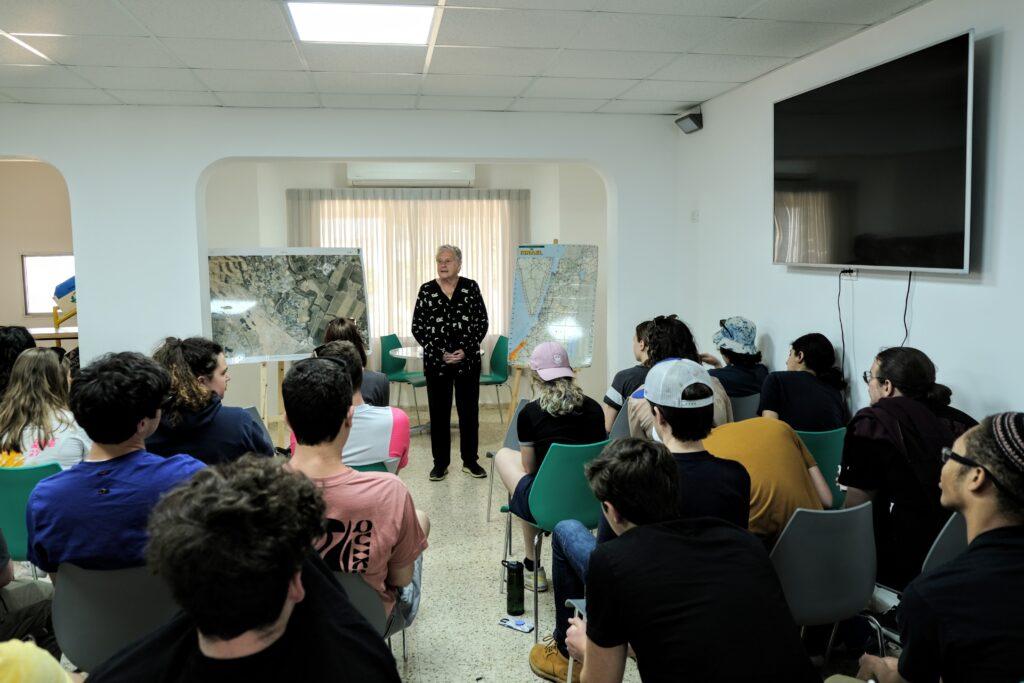
But what stood out the most about our conversation with Keidar was her optimism for peace. One of the most beautiful things she told us was something along the lines of: People think I’m a dreamer because I’m so optimistic, and I believe my small acts will make a difference. But I’m not the dreamer in this situation. The dreamers are Palestinians who believe that they will drive Jews out into the sea. Dreamers are Israelis who believe that the current situation is a solution. I believe that the only possibility for the future is peace.
With all I have in me I want to emphasize her words.
There is a reason this conflict has lasted as long as it has, is backed by so much passion, and it has been impossible to solve. What I’ve come to realize is that the reason is simple: The land has meaning. As much as biblical stories can be discreditable, there is archaeological proof of Jewish and Palestinian residence there. Why have the technicalities of “how long was too long ago” and “who was there first” become a cause for so much unnecessary hate and selfish opinion? I am proud to say, although I may never know entirely the stance I take on this conflict, I am firm in my belief that validating both the Jewish and Palestinian desire for the land is the only way one can acknowledge truth.
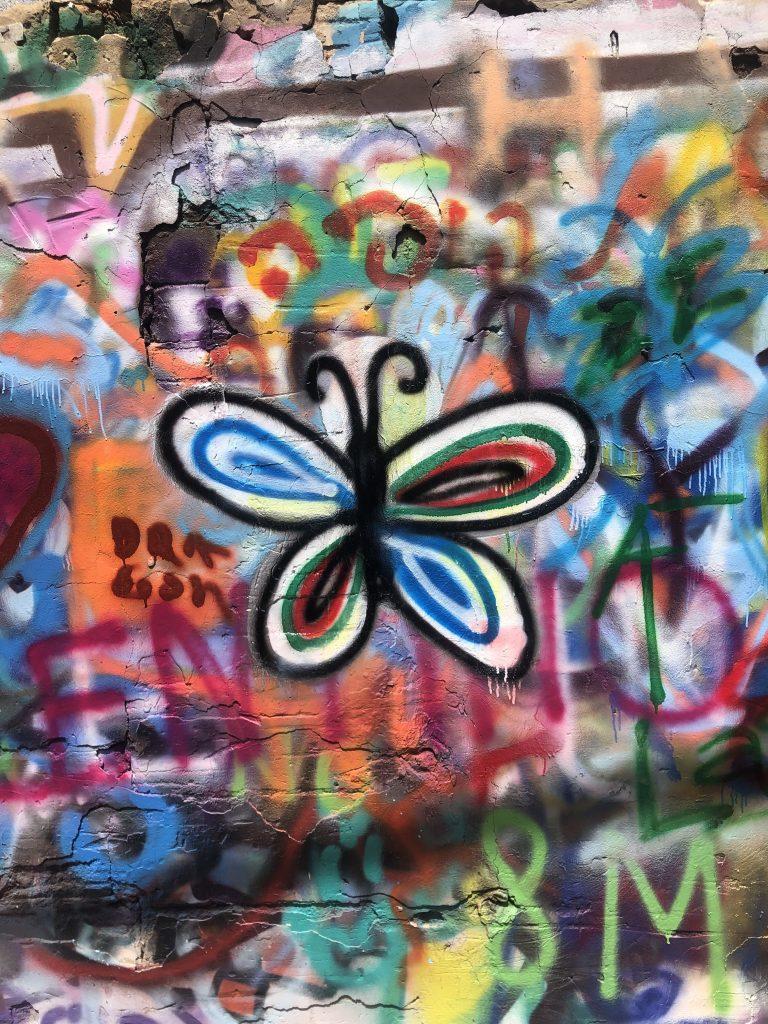
As I think about the present tense of the conflict, I feel as though the urgency of the situation derives solely from the constant state of violence. My group was in Israel for two weeks, and over the course of ten of those days, three separate terror attacks occurred – a literal spike of terror. Nobody should be content in this reality. Nobody should be content with terror.
For me personally, the terror attacks reminded me that another significant rationale for Zionism and the Israeli cause is having a country as a safe haven for Jews; this is especially important when considering the abundant history of exile, expulsion, persecution, pogrom, genocide, and antisemitism toward a single ethnoreligous group. Yet, at the end of the day, Palestinians have also been exiled and deserve their nationality too.
I wish more than anything a solution was simple. I’d love to discreetly say, “Let’s just give the PA full rights over authority in the West Bank” and claim I am personally at peace with a solution, but there’s more to it still for me to learn.
So, all I hope is that I can be a voice for many young and progressive American Jews who have not found the words to express their feelings on this topic. I am just Jewish. I want peace as much as anyone. Only once both sides of the conflict are validated can peace truly be possible.

































